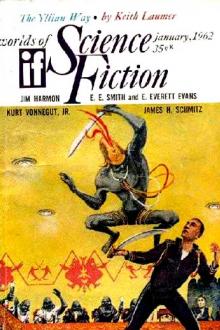Tracking Shot, Colin Campbell [moboreader TXT] 📗
- Author: Colin Campbell
Book online «Tracking Shot, Colin Campbell [moboreader TXT] 📗». Author Colin Campbell
McNulty had known Larry would come around, but there was something else. Something that needed approaching from the side. McNulty fixed steady eyes on his producer. “Did you mean what you said about Titanic Productions being family?”
Larry slitted his eyes and spoke slowly. “Yes.”
McNulty nodded. “Well, push comes to shove, I might need the family to pull together.”
Larry was noncommittal. “Mmm-hmm?”
McNulty kept it vague. “You know the first rule of stunt work is to eliminate the risk?”
Larry nodded but didn’t speak.
McNulty lowered his voice. “Well, this could get a bit risky.”
THIRTY-SEVEN
Waltham wasn’t big enough to have a lot of potential targets. The most obvious were the banks but the banks were closed until nine a.m. so it was the following morning before McNulty began making his inquiries. There were only ten banks in and around Waltham. He got the addresses from the same kid who’d shown him the motel CCTV and followed recommended police inquiry practice, starting with the nearest strip of banks on Main Street.
McNulty still carried himself like a cop so getting in to ask a few questions wasn’t a problem, but without a badge or official I.D., there was no easy way to broach the subject, so he just came right out and asked. “How much money do you keep in the vault?”
The hardest thing for ex-cops to accept is the fact that they no longer have any authority. They’re just Joe Citizen. There was a time when you walked into a room and people stopped in case you were after them. You had the power to force entry, seize property and deprive a person of his liberty all on the strength of a uniform and an I.D. card. McNulty didn’t have a uniform or an I.D. card. The world didn’t stop when he walked into a bank. It didn’t stop until he asked the teller how much money they had in the vault.
McNulty was almost thrown out of the Rockland Trust on Moody Street and the teller at the People’s United Bank was a hair’s breadth of bringing Main Street to a stop. If she’d hit the silent alarm, the police would have closed Main Street and the streets on either side of the bank, and isolated the building. The McDonald’s behind the bank would have been evacuated and the appropriately named Nathaniel P. Banks School opposite would have been used as a command center. Neither of those things happened but they came close. What McNulty learned was that he’d need to use lateral thinking, and that banks don’t have armed security guards anymore.
By the time he’d exhausted the town center banks and moved toward Hardy’s Pond and the Concord Turnpike he was using his connection with Titanic Productions as an introduction and “location scouting” as the reason he was asking so many questions. The amount of money they kept in the vault became a conversational aside instead of the main reason he was there. It was a tactic that worked wonders, and told him absolutely nothing.
Bank of America on Waltham Street confirmed that most branches didn’t carry large amounts of currency anymore because most businesses transferred money electronically and paid bills online. Cash transactions were mainly walk-in trade or customers visiting the strip malls on either side of the road, most of whom used the ATMs dotted around the shopping district. The manager of Santander around the corner on Trapelo Road helped McNulty lead into his next area of inquiry: cash deliveries and industrial payrolls. The days of the factory payroll heist were over, because staff were paid directly into their bank accounts and the only armored-car deliveries were to the banks themselves. This brought McNulty right back to the input offered by the teller at the Bank of America: most branches don’t keep large amounts of currency on hand. Santander’s manager agreed.
“The only big money drop around here is the Fourth of July giveaway. And that only happens once a year.”
McNulty’s ears pricked up. “The giveaway? Is that a big deal?”
The manager gave McNulty a look as if talking to a fool. “Biggest deal there is. That guy DeVries throwing cash at the masses. Even bigger this year, with the election and all.”
McNulty played the fool. “How come?”
The manager indicated a poster on the wall. It was the same Fourth of July ad he’d been seeing all over Waltham but hadn’t really paid attention to, the parade at Banks Square and the fireworks at Waltham High School. Next to it, a smiling county sheriff looked out from a campaign poster.
“DeVries is a major contributor to the re-election campaign. He makes a big deal of it at the end of the parade—money truck and everything.”
McNulty looked at the manager. “How much we talking about?”
The manager kept a straight face. “This year?” He paused for effect, then lowered his voice. “One million dollars.”
THIRTY-EIGHT
McNulty sat in the Santander parking lot and ran the air conditioner. His mind was still grasping the enormity of a charitable donation with six zeroes behind it, some of it to the community but most of it in campaign contributions—all of it worth killing a fake judge and a few movie extras for. He wondered about the man who could afford to give away so much money and still finance an orphanage and adoption service. How much must Harlan DeVries be worth? And how much would he miss a million dollars if somebody stole it from him? Probably not at all, since he was giving it away anyway. Charitable donations he could claim back against tax; stolen money would be covered by insurance. Dead people would remain dead.
A warning beep and a flashing orange





Comments (0)